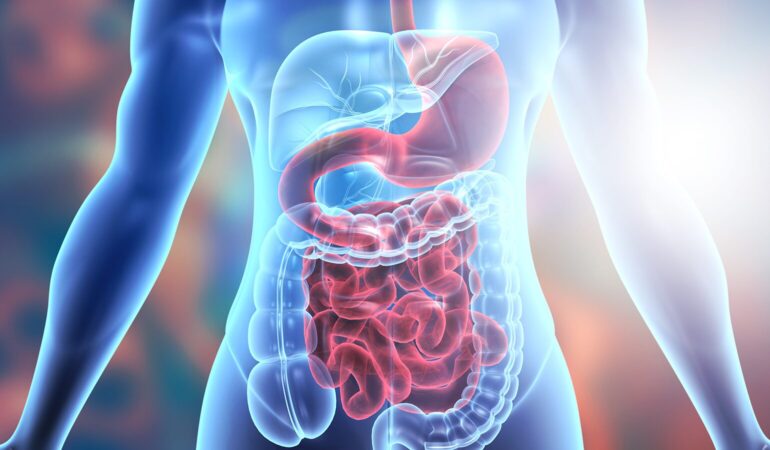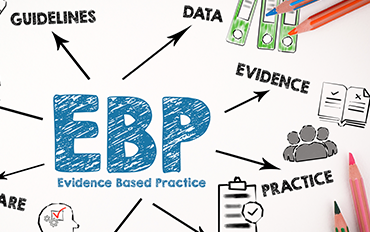Over 60 million Americans suffer from gastrointestinal disorders (GI), yet only about 25% receive treatment for their symptoms (Knowles et al., 2019; National Institutes of Health & U.S. Department of Health and Human Services, 2009). Common manifestations include acid reflux, bloating, bowel irregularities (e.g., constipation, diarrhea, incontinence), nausea, abdominal pain, and vomiting (Knowles et al., 2019). These symptoms stem from a complex interplay of risk factors, including obesity, dietary choices (e.g., ultra-processed foods, food sensitivities), eating patterns (e.g., overeating), dysregulated stress responses, mental health challenges (e.g., anxiety, catastrophizing, chronic stress), physical inactivity, and sleep disturbances (Camilleri et al., 2017; Keefer et al., 2018).
The nascent field of psychogastroenterology, rooted in neuroscience and psychology, offers a promising, integrative framework to prevent and mitigate these conditions by addressing their bidirectional psychological and physiological roots (Bodo et al., 2024; Riehl et al., 2019). This article introduces mental health clinicians, substance use treatment providers, and allied health professionals to psychogastroenterology, highlighting its potential to transform care through a multidisciplinary, and neurobiologically informed lenses.
Many notable disorders of the digestive system are called functional gastrointestinal disorders (FGIDs) in the literature. The term “functional” is based on the presentation of symptoms in the absence of structural abnormalities. Despite the absence of structural abnormalities, patients experience impairment of normal bowel activity, intestinal nerve sensitivity, and impaired brain control of the gut (International Foundation for Gastrointestinal Disorders, 2025). The ROME IV criteria provide diagnostic guidelines for medical providers to diagnose FGIDs (International Foundation for Gastrointestinal Disorders, 2025). However, the ROME Foundation now categorizes these disorders as disorders of gut-brain interaction (DGBI). The DGBI diagnosis involves meeting the physical gastrointestinal symptom criteria in the Rome IV diagnostic criteria, related to the specific area of the body, such as the bowels or esophagus. The symptoms must cause distress and create impairments in daily life or impact quality of life (Grossman & Tack, 2022). DGBIs include, but are not limited to, irritable bowel syndrome (IBS), functional heartburn, functional constipation, and functional diarrhea (ROME Foundation, 2016).
The prevalence of comorbid psychological disorders in those with GI disorders is very high (Daly & Zarate-Lopez, 2021). Irritable bowel syndrome (IBS) and other gastrointestinal disorders frequently co-occur with depression and anxiety (Staudacher et al., 2021). In fact, up to 20-30% of IBS patients are affected by mood disorders (Bartucci et al., 2023). Overall, mental illnesses are more prevalent in IBS patients than in the general population. Common comorbid disorders include bipolar disorder (Wang et al., 2022), anxiety, depression, eating disorders, and suicidal ideation. There is also evidence that comorbid mental illnesses may exacerbate existing GI disorders and in the case of hospitalization, increase length of stay (Tarar et al., 2023). Other, non- DGBIs, include inflammatory bowel disease (IBD), which includes Crohn’s disease and ulcerative colitis. These disorders can be triggered and exacerbated by chronic psychological stress. Bidirectionality is evident in the pathophysiology of IBD, with the inflammation of the central nervous system (CNS) furthering depression and anxiety (Li et al, 2022). Data shows that IBD predisposes patients to disorders of the CNS (Gunther et al, 2021). Depression and anxiety may adversely impact the course and activity of IBD. Despite IBD being chronic and largely incurable disorders, there is growing evidence that addressing psychological variables, specifically anxiety and depression, should be considered in those with IBD (Eugenicos & Ferreira, 2021).
 Psychogastroenterology bridges digestive and mental health via the gut-brain axis—a bidirectional communication network linking the CNS and the enteric nervous system (ENS) through neural pathways (e.g., the vagus nerve), hormonal signals (e.g., cortisol, serotonin), and immune mediators (e.g., cytokines). It employs evidence-based strategies to treat co-occurring gastrointestinal (GI) and psychological disorders (Ballou et al., 2019; Riehl & Taft, 2021). This demands collaboration among mental health professionals (e.g., psychologists, social workers), medical practitioners (e.g., gastroenterologists, nurses), and nutritionists (Bedell, 2022; Knowles et al., 2019). The multifactorial nature of GI conditions, spanning gut microbiota imbalances, neuroinflammation, and emotional dysregulation, renders it impractical for one clinician to master the requisite neuroscience, psychology, and nutritional expertise needed to address clients’ physical, cognitive, and emotional symptoms holistically (Knowles et al., 2019; Yadlapanti et al., 2018). Robust interdisciplinary coordination of care is thus indispensable for optimizing short- and long-term outcomes (Knowles et al., 2019).
Psychogastroenterology bridges digestive and mental health via the gut-brain axis—a bidirectional communication network linking the CNS and the enteric nervous system (ENS) through neural pathways (e.g., the vagus nerve), hormonal signals (e.g., cortisol, serotonin), and immune mediators (e.g., cytokines). It employs evidence-based strategies to treat co-occurring gastrointestinal (GI) and psychological disorders (Ballou et al., 2019; Riehl & Taft, 2021). This demands collaboration among mental health professionals (e.g., psychologists, social workers), medical practitioners (e.g., gastroenterologists, nurses), and nutritionists (Bedell, 2022; Knowles et al., 2019). The multifactorial nature of GI conditions, spanning gut microbiota imbalances, neuroinflammation, and emotional dysregulation, renders it impractical for one clinician to master the requisite neuroscience, psychology, and nutritional expertise needed to address clients’ physical, cognitive, and emotional symptoms holistically (Knowles et al., 2019; Yadlapanti et al., 2018). Robust interdisciplinary coordination of care is thus indispensable for optimizing short- and long-term outcomes (Knowles et al., 2019).
A growing array of psychogastroenterology-focused interventions has emerged, including gastrointestinal-specific cognitive-behavioral therapy (GI-CBT), dietary interventions, clinical hypnotherapy, psychoeducation, and trauma-informed care (TIC) (see Table 1). Beyond dietary factors, these approaches target anxiety, behavioral avoidance, emotional dysregulation, visceral hypersensitivity, maladaptive cognitions, and stress (Murray & Ljótsson, 2022; Reed et al., 2020). Mental health professionals leverage these tools to foster coping skills, resilience, and sustainable health behaviors (Riehl & Taft, 2021). For instance, GI-CBT might help a client reframe catastrophic thoughts about irritable bowel syndrome (IBS) flare-ups, while hypnotherapy could modulate vagal tone to ease abdominal pain. Despite rising momentum to integrate psychogastroenterology into GI practice, trained specialists remain scarce (Gerson et al., 2023). Addressing this gap requires expanded, accessible training programs for current professionals as well as innovative, technology-driven interventions to enhance reach and efficacy (Reed et al., 2020).
Intervention |
|
Description |
|
References |
| GI-CBT | GI-CBT adapts cognitive-behavioral therapy to alleviate GI symptoms, improve outcomes, and enhance quality of life by targeting cognitive (e.g., symptom-related anxiety, hypervigilance) and behavioral (e.g., avoidance, poor coping) factors. Tailored to individual strengths, it often integrates acceptance and commitment therapy (ACT) techniques, e.g., mindfulness to accept discomfort, value-driven goals to reduce avoidance. Example: A client learns to challenge thoughts such as “I’ll never eat normally while pacing meals mindfully. | Bedell (2022) | ||
| Clinical Hypnotherapy | Hypnotherapy modulates autonomic arousal and GI nerve function, potentially via vagal stimulation or reduced sympathetic overdrive. Evidence-based protocols (e.g., Manchester, North Carolina) show efficacy, though mechanisms remain elusive, possibly involving neuroplasticity or stress reduction. Example: Guided imagery of a calm gut reduces IBS pain. | Bedell (2022) | ||
| Internalized Stigma | GI symptoms (e.g., bloating, incontinence) often carry stigma, worsening psychological distress (e.g., shame, isolation). Treatment should address stigma’s emotional fallout. Example: Normalizing diarrhea in therapy counters feelings of hopelessness. | Knowles et al. (2019); Guadagnoli & Taft (2020) | ||
| Trauma-Informed Care | Trauma-informed care (TIC) enhances client-provider trust and system-wide care quality by recognizing trauma’s GI impact (e.g., heightened visceral sensitivity). Training in TIC is recommended. Example: A trauma-sensitive approach avoids triggering a client with abuse-related IBS. | Szkodny et al. (2024) | ||
| Coping and Resilience | Stress exacerbates digestive disorders; building coping skills (e.g., diaphragmatic breathing) and resilience (e.g., adaptive self-efficacy) is foundational. Example: Stress inoculation training helps a client face unpredictable flare-ups. | Ballou & Feingold (2022) | ||
| Psychoeducation | Psychoeducation equips clients with relaxation techniques, gut-brain axis insights (e.g., microbiota’s role in mood), and self-management strategies. Example: Teaching vagal breathing reduces nausea tied to anxiety. | Bedell (2022) | ||
| Applied Positive Psychology | This approach uses “positive interventions” (PIs) such as gratitude journaling and strength-based goal-setting to leverage client assets, offering a cost-effective complement to intensive therapies. Example: Writing about a supportive friend boosts mood amid chronic pain. | Feingold et al. (2019) | ||
| Dietary Interventions | Collaborative efforts with dietitians/nutritionists to address dietary triggers (e.g., FODMAPs, gluten), integrating nutritional strategies into care. Example: A low-FODMAP plan paired with CBT reduces bloating and fear of eating. | Murray et al. (2022) | ||
Closing remarks
The gut-brain axis is a critical nexus for mental health clinicians and allied health professionals. Individuals with chronic GI issues often endure fragmented care, shuttling between specialists with little relief, reflecting a failure to integrate brain-gut interplay. However, together, these professionals can break the cycle of siloed treatment. Mental health clinicians bring expertise in emotional regulation and behavioral change, while allied health professionals offer practical tools such as nutrition education and medication. This synergy matters for positive outcomes. It’s a win-win for providers and individuals alike, fostering care that’s as interconnected as the gut and brain themselves.
Important highlights and key takeaways
Digestive health problems: Overview
- Many Americans experience digestive health problems
- Digestive health problems are one of the primary reasons why people seek health care
- Only a minority of the people who suffer from digestive health problems seek treatment
- Not only are digestive health problems prevalent, but they are also incredibly complex
- Digestive health problems encompass everything from constipation and diarrhea, bloating, nausea and vomiting, to gastroesophageal reflux disease (GERD), irritable bowel syndrome (IBS), and Crohn’s disease
- Digestive health problems can be incredibly difficult to manage and often necessitate a multidisciplinary team approach to treatment
Digestive health problems: Consequences
- Digestive health problems often contribute to greater healthcare utilization
- Digestive health problems increase the risk of psychological issues like anxiety, catastrophizing, and depression
- Managing the physical symptoms (e.g., discomfort) and uncertainty of living with chronic gastrointestinal conditions can take an emotional toll (e.g., mental health problems)
- Digestive health problems are costly, debilitating, life-altering, overwhelming, and adversely impact quality of life
- Digestive health issues can contribute to serious complications such as malnutrition, nutrient deficiencies, dehydration, skin disorders, infertility, and impaired mental health
 Gut-brain axis
Gut-brain axis
- Gut health influences brain health and vice versa
- Individuals with mental illness and substance use disorders are disproportionately likely to suffer from gut-brain axis dysfunction
- Dysregulation of the gut-brain axis can undermine emotional and behavioral health
- Depression, anxiety, and bipolar disorders commonly co-occur with gastrointestinal disorders
- Emerging research indicates that dysfunction of the gut-brain axis may play a role in problematic and disruptive behavioral patterns
- Cognitive, emotional, and behavioral patterns can have a direct influence on gut health
- Optimal functioning of the gut-brain axis is central to improved mood, behavior, cognition, and physical health
Psychogastroenterology: Overview
- Psychogastroenterology is an emerging field that can help prevent digestive health problems and offer promising treatment approaches for gut-brain axis dysfunction
- One of the key strengths of psychogastroenterology is its ability to guide the treatment of both digestive health problems and mental health problems within the same framework
- Psychogastroenterology complements and enhances other fields, including nutritional neuroscience, psychoneuroimmunology, and neurocounseling, among others.
- Professionals working in the field of psychogastroenterology could include gastroenterologists, medical doctors, nurses, psychologists, dietitians/nutritionists, and social workers
- The implementation of psychogastroenterology-informed approaches requires a collaborative care process across professionals from mental health, medical, and nutrition disciplines
- Psychogastroenterology-informed approaches have the potential to improve our understanding of:
- How the brain influences the gut and vice versa (i.e., the gut-brain axis)
- How dysregulation of the gut-brain axis can adversely impact overall human health and well-being
- Why different treatment approaches and techniques are effective for gastrointestinal issues and psychological problems
- The etiologies for gastrointestinal and co-occurring psychological problems
Psychogastroenterology: Treatment
- The implementation of psychogastroenterology-informed approaches is adaptable to most settings
- Psychogastroenterology-informed approaches can be used in face-to-face formats, group settings, virtual care, and other settings
- Improved understanding of digestive health problems can help validate a client’s feelings and promote healthy lifestyle changes
- The management and treatment of behavioral patterns can be augmented through a better understanding of gut-brain axis dysfunction
- When treating mental health disorders, professionals should prioritize improving gut health functioning
- Psychogastroenterology-informed approaches can help:
- Guide and inform multidisciplinary and integrated treatment and intervention planning
- Reduce symptom burden and remediate psychological vulnerabilities
- Improve the screening and assessment of problematic biological, psychological, and social factors
- Enhance the effectiveness of positive psychological interventions.
- Promote skill development by clients
- Psychogastroenterology-focused treatment approaches often incorporate GI-cognitive behavioral therapy, applied positive psychology, psychoeducation, and dietary interventions
- Maladaptive cognitions, behavioral avoidance, and physiological perceptions are some of the gastroenterological-relevant issues that can be addressed with psychological approaches
- The development of coping skills and resilience are critical in increasing a client’s capacity to address their digestive health problems
Psychogastroenterology: Client benefits
- Psychogastroenterology-informed approaches can help clients with:
- Developing more effective coping skills for the management of their symptoms, diagnosis, and treatment. Reducing their levels of distress, fear, and stigma
- Understanding and managing their physiological arousal levels
- Addressing emotional, behavioral, and physical suffering
- Increasing their psychological flexibility
- Improving in a wide variety of areas including maladaptive behavioral patterns and substance abuse and misuse
Psychogastroenterology: Professional training
- The fields of mental and behavioral health have a critical shortage of providers with expertise in psychogastroenterology
- Emerging research is also finding that gut brain axis dysfunction may play a role in the development of problematic and concerning behavior. As such, forensic psychological and neurocriminological professionals would benefit from becoming psychogastroenterology-informed
- Professionals with training in psychogastroenterology-informed approaches are in a unique position to help clients improve overall health and well-being
- Professionals with training in psychogastroenterology-informed approaches have the versatility to assist clients from a variety of settings
- Professionals working in mental health and other related areas are encouraged to stay abreast of psychogastroenterology research by accessing a wealth of online resources through The Rome Foundation
- The Rome Foundation’s goal is to improve the lives of people with Disorders of Gut-Brain Interaction (DGBI)
- There is a dire need for the increased availability of training and advanced education programs focused on psychogastroenterology

Jerrod Brown, PhD, MA, MS, MS, MS, is a professor, trainer, researcher, and consultant with multiple years of experience teaching collegiate courses. Jerrod has completed four separate master’s degree programs and holds graduate certificates in Medical Biochemistry, Exercise Prescription, Neuroscience and the Law, Neuropsychology, Dyslexia, Autism Spectrum Disorder (ASD), Other Health Disabilities (OHD), and Traumatic-Brain Injuries (TBI). Currently, Jerrod is pursuing his fifth master’s degree in Applied Clinical Nutrition from Northeast College of Health Sciences.

Jeremiah Schimp, PhD, MA, LPCC, is an Assistant Professor of Psychology at Concordia University, St. Paul. He has taught psychology since 2016, specializing in counseling and psychopathology. He has worked in the mental health field since 2004, focusing his clinical career on adults diagnosed with serious and persistent mental illnesses and substance use disorders. Dr. Schimp holds a BA in Psychology, a MA in Counseling Psychology and a PhD in Psychology with a specialization in health psychology. He is a Licensed Professional Clinical Counselor in the state of Minnesota and holds certifications in integrative mental health, addiction, and trauma.

Shelley Mydra, DMFT, LMFT, is a Professor of Psychology at Pepperdine University Graduate School of Education and Psychology. She holds a Doctorate and Licensure in Marriage and Family Therapy and has extensive clinical experience. In addition to being an AAMFT Approved Supervisor, she is certified in Lifestyle Medicine and Pain Neuroscience Education.

Jennifer Sweeton, PsyD, MS, MA, is a clinical and forensic psychologist specializing in the assessment and treatment of trauma- and stressor-related disorders. Dr. Sweeton owns a private practice, and is an adjunct faculty member at the University of Kansas School of Medicine. She completed her doctoral training at the Stanford School of Medicine, Palo Alto University, and the National Center for PTSD.

Leanne Skehan DCN, MSACN, MPH, MBA, holds a Doctor of Clinical Nutrition degree from Maryland University of Integrative Health. She is a full-time faculty member at Southern New Hampshire University in the Master of Public Health program and an adjunct instructor at Northeast College of Health Sciences in the Master of Applied Clinical Nutrition program. Dr. Skehan resides in Texas, where she operates a nutrition consultation business.
Ballou, S., & Feingold, J. H. (2022). Stress, resilience, and the brain–gut axis: Why is psychogastroenterology important for all digestive disorders? Gastroenterology Clinics, 51(4), 697-709.
Ballou, S., Katon, J., Singh, P., Rangan, V., Lee, H. N., McMahon, C., … & Nee, J. (2019). Chronic diarrhea and constipation are more common in depressed individuals. Clinical Gastroenterology and Hepatology, 17(13), 2696-2703.
Bartucci, B., Buono, A. D., Gabbiadini, R., Busacca, A., Quadarella, A., Repici, A. & Armuzzi, A. (2023). Mental illness in inflammatory bowel disease: Mens sana in corpore sano. Medicina, 59(682), 1-14.
Bedell, A. (2022). Integrating psychogastroenterology into GI care. https://www.mdedge.com/gihepnews/article/252999/mixed-topics/integrating-psychogastroenterology-gi-care
Bodo, C. R., Salcudean, A., Nirestean, A., Lukacs, E., Lica, M. M., Muntean, D. L., … & Strete, E. G. (2024). Association between chronic Misophonia-Induced stress and gastrointestinal pathology in children—A hypothesis. Children, 11(6), 699.
Butt, M. F., Groen, J., Jonker, C. A., Burton‐Murray, H., Carrington, E. V., Chang, L., … & Benninga, M. A. (2024). Pediatric to adult transition care in neurogastroenterology and motility: A position paper from the American Neurogastroenterology and Motility Society and European Society of Neurogastroenterology and Motility. Neurogastroenterology & Motility, 36(10), e14869.
Camilleri, M., Malhi, H., & Acosta, A. (2017). Gastrointestinal complications of obesity. Gastroenterology, 152(7), 1656–1670. https://doi.org/10.1053/j.gastro.2016.12.052
Daly, M. & Zarate-Lopez, N. (2021). Functional gastrointestinal disorders: History taking skills in practice. Clinical Medicine, 21(5), 480-486.
Eugenicos, M. P. & Ferreira, N. B. (2021). Psychological factors associated with inflammatory bowel disease. British Medical Bulletin, 138, 16-28.
Feingold, J., Murray, H. B., & Keefer, L. (2019). Recent advances in cognitive behavioral therapy for digestive disorders and the role of applied positive psychology across the spectrum of GI care. Journal of Clinical Gastroenterology, 53(7), 477-485.
Gerson, J., Tawde, P., Ghiasian, G., & Salwen-Deremer, J. K. (2023). Patients’ experiences with virtual group gut-directed hypnotherapy: A qualitative study. Frontiers in Medicine, 10, 1066452.
Grossman, D. A. & Tack, J. (2022). Rome Foundation clinical diagnostic criteria for disorders of gut-brain interaction. Gastroenterology, 162(3), 675-679.
Guadagnoli, L., & Taft, T. H. (2020). Internalized stigma in patients with eosinophilic gastrointestinal disorders. Journal of Clinical Psychology in Medical Settings, 27(1), 1-10.
Gunther, C., Rothhammer, V., Karow, M., Neurath, M. &Winner, B. (2021). The gut-brain axis in inflammatory bowel disease—Current and future perspectives. International Journal of Molecular Sciences, 22(8870), 1-18.
International Foundation for Gastrointestinal Disorders. (2025). Functional GI disorders. https://iffgd.org/gi-disorders/functional-gi-disorders/
Keefer, L. (2018). Behavioural medicine and gastrointestinal disorders: the promise of positive psychology. Nature Reviews Gastroenterology & Hepatology, 15(6), 378-386.
Keefer, L., Palsson, O. S., & Pandolfino, J. E. (2018). Best practice update: incorporating psychogastroenterology into management of digestive disorders. Gastroenterology, 154(5), 1249-1257.
Knowles, S. R., Keefer, L., & Mikocka-Walus, A. A. (Eds.). (2019). Psychogastroenterology for adults: A handbook for mental health professionals. Routledge.
Law, M., Bartlett, E., Sebaratnam, G., Pickering, I., Simpson, K., Keane, C., … & Calder, S. (2023). “One more tool in the tool belt”: A qualitative interview study investigating patient and clinician opinions on the integration of psychometrics into routine testing for disorders of gut-brain interaction. medRxiv, 2023-06.
Li, G., Liu, S., Li, S., Yang, J., Hu, G., Xu, C., & Song, W. (2022). Psychological stress in inflammatory bowel disease: Psychoneuroimmunological insights into bidirectional gut-brain communications. Frontiers in Immunology, 13, 1-20.
Lores, T. (2020). Addressing mental health needs in people with gastrointestinal conditions. J. GENCA, 30(1).
Murray, H. B., & Ljótsson, B. (2022). Future of brain–gut behavior therapies: Mediators and moderators. Gastroenterology Clinics of North America, 51(4), 723-739.
Murray, H. B., Doerfler, B., Harer, K. N., & Keefer, L. (2022). Psychological considerations in the dietary management of patients with DGBI. Official Journal of the American College of Gastroenterology| ACG, 117(6), 985-994.
National Institutes of Health, & US Department of Health and Human Services. (2009). Opportunities and challenges in digestive diseases research: recommendations of the national commission on digestive diseases. Bethesda, MD: National Institutes of Health.
Reed, B., Buzenski, J., & van Tilburg, M. A. (2020). Implementing psychological therapies for gastrointestinal disorders in pediatrics. Expert Review of Gastroenterology & Hepatology, 14(11), 1061-1067.
Riehl, M. E., & Taft, T. H. (2021). Working with patients with chronic digestive diseases. Journal of Health Service Psychology, 47(2), 105-114.
Riehl, M. E., Kinnucan, J. A., Chey, W. D., & Stidham, R. W. (2019). Nuances of the psychogastroenterology patient: a predictive model for gastrointestinal quality of life improvement. Neurogastroenterology & Motility, 31(9), e13663.
Rome Foundation. (2016). Rome IV diagnostic criteria for disorders of gut-brain interaction (DGBI). https://theromefoundation.org/rome-iv/rome-iv-criteria/
Staudacher, H. M., Mikocka-Walus, A., & Ford, A. C. (2021). Common mental disorders in irritable bowel syndrome: pathophysiology, management, and considerations for future randomized controlled trials. The Lancet Gastroenterology & Hepatology, 6(5), 401-410.
Szkodny, L. E., Bardach, S. H., Hacker, K., Tormey, L. K., Gohres, K., Siegel, C. A., & Salwen-Deremer, J. K. (2024). Implementation of a trauma-informed care approach in a gastroenterology setting. Digestive Diseases and Sciences, 1-9.
Talley, N. J., Zinsmeister, A. R., & Melton III, L. J. (1995). Irritable bowel syndrome in a community: symptom subgroups, risk factors, and health care utilization. American Journal of Epidemiology, 142(1), 76-83.
Tarar, Z. I., Farooq, U., Zafar, Y., Ghandi, M., Raza, S., Kamal, F. … Ghouri, Y. A. (2023). Burden of anxiety and depression among hospitalized patients with irritable bowel syndrome: a nationwide analysis. Irish Journal of Medical Science, 192(5), 2159-2166.
Wang, Z., Wang, X., Zhao, X., Hu, Z., Sun, D., Wu, D., & Xing, Y. (2022). Causal relationship between bipolar disorder and inflammatory bowel disease: A bidirectional two-sample mendelian randomization study. Frontiers in Genetics, 13, 1-9.
van Tilburg, M. A. (2020). Psychogastroenterology: A cure, Band-Aid, or prevention? Children, 7(9), 121.
Yadlapati, R., Tye, M., Keefer, L., Kahrilas, P. J., & Pandolfino, J. E. (2018). Psychosocial distress and quality of life impairment are associated with symptom severity in PPI non-responders with normal impedance-pH profiles. Official Journal of the American College of Gastroenterology ACG, 113(1), 31-38.
Other articles
Ketamine-Assisted Psychotherapy: Relational Healing in Couples and Families
Positive relationships and social connection are essential for human flourishing and thought to be key for long-term happiness, longevity, and wellness. However, utilizing evidence-based systemic therapies alone may not be the solution for everyone, and psychedelics may provide an innovative way to facilitate relational healing.
Jennifer Cahill, PhD
Outcomes Framework for Supervision: The Acid-Test
After a century of psychotherapy supervision and over half a century of supervision research, what do we know empirically about the contribution of psychotherapy supervision to patient outcomes (Watkins, 2011; Watkins, 2020; Callahan & Watkins, 2018)? According to reviews conducted by Watkins (2011; 2020), we still don’t know much. This was the conclusion of Watkins after his initial review of 30 years of psychotherapy research (2011).
H. Charles Fishman, MD, Misti Sparks, PhD, & Violeta Kadieva, PhD
Helping Teens Heal from Eating Disorders: Where Family Support, Education, and Recovery Intersect
For families navigating the complexities of an adolescent’s eating disorder diagnosis, treatment decisions often come with difficult trade-offs—including the disruption of their child’s academic progress. School interruptions can heighten a teen’s resistance to treatment, increase family stress, and create barriers to long-term recovery.
Courtney Anderson, MA



